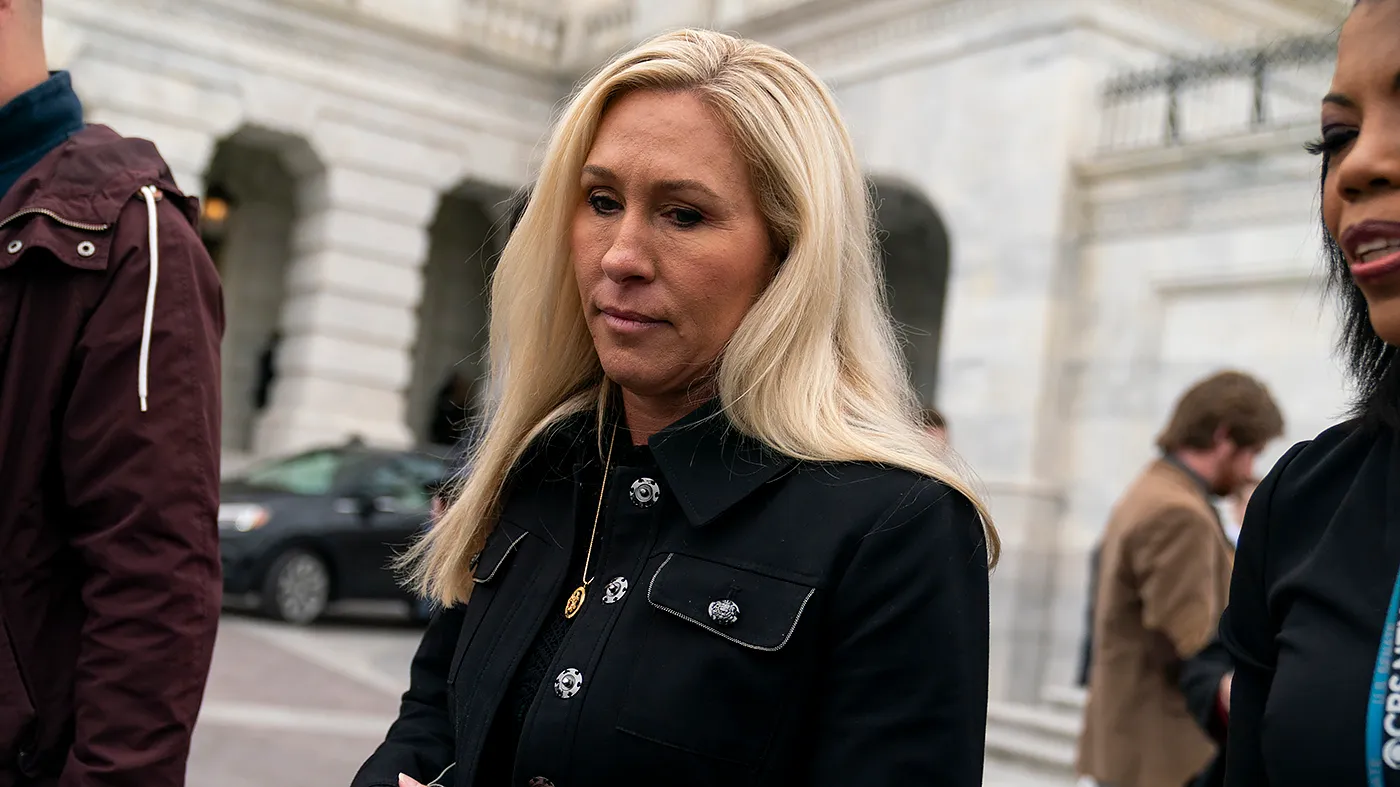In a scathing memo, Republican Congresswoman Marjorie Taylor Greene has intensified her efforts to remove House Speaker Mike Johnson. In a five-page letter addressed to her GOP colleagues, Greene outlined her grievances against Johnson, accusing him of failing to fulfill his campaign promises and disregarding legislative procedural rules. She asserted that Johnson’s leadership has caused turmoil within the GOP and aligned too closely with the Democratic agenda, angering the Republican base.
Citing Johnson’s failure to uphold his self-imposed priorities outlined during his bid for speakership, Greene emphasized her dissatisfaction with his performance. While she did not specify a timeline for a potential floor vote to oust Johnson, Greene described her actions as a “warning” and highlighted her intention to persist with the issue. This letter marks her first direct appeal to fellow Republicans to support her initiative to remove the speaker.
New — Spoke with Marjorie Taylor Greene this afternoon who said she's "not backing off at all" on her push to oust Mike Johnson, whom she plans to speak with on Friday.
And she warned him not to move on Ukraine — particularly under suspension of the rules — and said if he…
— Manu Raju (@mkraju) April 3, 2024
Johnson, in response, attempted to downplay Greene’s threat and sought to ease tensions between them. Despite exchanging text messages during the Easter recess, a scheduled discussion between Johnson and Greene did not materialize. Johnson expressed respect for Greene, acknowledging their differences in strategy but emphasizing their shared conservative beliefs.
Some centrist Democrats have indicated their reluctance to let Greene’s actions disrupt the functioning of the House, particularly regarding critical issues like funding for Ukraine. While many Democrats may not support Johnson, they are wary of allowing Greene to seize control of House proceedings. However, there is an expectation that a significant portion of the Democratic caucus would support Johnson if his speakership were endangered by a vote on Ukraine aid.

Meanwhile, pressure mounts on Johnson to address the issue of Ukraine funding amid the threat of an intra-party revolt led by Greene. Johnson has signaled the House’s intention to consider Ukraine aid, but staunch opposition from hard-right members complicates the situation. Greene has already introduced a motion-to-vacate resolution, challenging Johnson to proceed with a Ukraine aid bill, which could prompt a vote on the matter.
In addition to internal party tensions, external factors such as UK Foreign Secretary David Cameron’s visit to Washington add complexity to the situation. Cameron’s discussions with US officials, including Secretary of State Antony Blinken, may influence the trajectory of US foreign policy, particularly regarding Ukraine. Overall, the dynamics within the House Republican caucus, combined with external pressures, contributed to a volatile political environment surrounding Johnson’s leadership and the issue of Ukraine aid.


